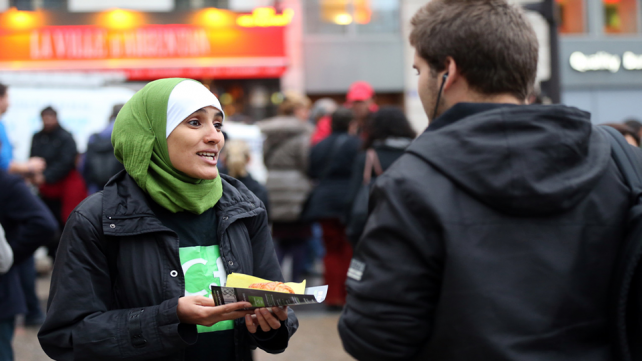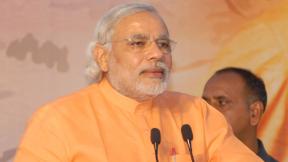
1. Name the hate: “Islamophobia”
A problem, until named or described, is often ignored. Consider that until we had the terms “racism” and “anti-Semitism”, these two types of prejudice were difficult to combat. Today, calling someone a “racist” or an “anti-Semite” is equivalent to an insult. Even those who fit this category would hate to be called these names. It is time we understand this and start calling out anti-Islamic and anti-Muslim prejudice for what it is: Islamophobia.
Also, on a community level, make sure that Masjid Khutbas, newsletters, and articles in the mainstream use this term for this phenomenon. It is important that our children also know what Islamophobia is and how it affects us and hurts America.
2. Report it and publicize it
Most people know that it was Rosa Parks’ act of civil disobedience, not sitting in the back of the bus, which launched the civil rights movement in the 1950s. What fewer people know, though, is that she was inspired by a brave woman who publicized the vicious murder of her teenage son, Emmett Till, by racists in Mississippi. Mamie Till chose to show the world the horrific torture her son had endured in an open casket funeral, where thousands witnessed the price of racism.
Today, Muslims need to do the same. We should not shy away from being public about the discrimination directed at us. A number of non-Muslim interfaith activists have told me they don’t understand why more Muslims don’t want to talk about this. Some even told me the names of major Muslim leaders who are their friends but have never spoken to them about it.
The FBI collects hate crime statistics. Report Islamophobia to them at your local FBI office. File a report with the Council on American-Islamic Relations. They issue an annual report on Muslim civil rights in the US. Also report the crime to your local police office.
Until we report and publicize Islamophobic attacks us, we cannot expect the country to stand up against it.
3. Keep listening to your kids
Make sure you have good communication with your children so they tell you what happens to them. Islamophobia is affecting young Muslims, in the form of bullying, and in some cases, even teachers participating in it. Children need to be able to discuss this with their parents and other family and community elders. They also need help standing up to it. They cannot face it alone, especially if someone in authority is involved.
4. Persuade the champions of fighting hate
Join hands with groups like the National Association for the Advancement of Colored People (NAACP), the Southern Poverty Law Center, and the American Civil Liberties Union (ACLU), who have a long history of fighting hate. Let them know when Islamophobic incidents do happen. The ACLU, for example, maintains a database of all attacked against Masjids. While writing this article, I noted that they did not report what happened to Illinois mosques this past Ramadan, so I sent them an email. Conversations, dialogue, and the support of these champions and their local chapters will go long way to persuade them to start using the term Islamophobia in their discourse and associate it with other forms of hate in our society. It would be great if each one of these organizations organized a conference against Islamophobia and anti-Semitism.
5. Know the impact of Islamophobia
Not everyone is aware of how pervasive it is, and how destructive it is. You don’t have to be personally subjected to it to experience it. Sound Vision seems to be the leading organization providing a comprehensive view of Islamophobia in America. Educate yourself and others.
6. Bring up the issue in interfaith circles
Some of Muslims’ staunchest allies, especially after 9/11, have been interfaith groups and coalitions. They have and continue to stand up for us, offering us a place to pray when our mosques are burned down, as happened recently in Joplin, Missouri this past summer, as well as speaking out against anti-Sharia bills that have been passed in a number of states. We need to strengthen this relationship and make more of our interfaith partners aware of Islamophobia. Interfaith dialogues and relationships are good in themselves, but if you can make them purposeful and goal-oriented, it is better for our society. If possible, get the organizations to issue a public statement condemning Islamophobia in general, as well as in response to specific incidents like those mentioned above.
7. Equate Islamophobia with anti-Semitism and racism
Islamophobia is no less than the intolerance of the past in a new form. It is a new manifestation of this ugly cancer, and it needs to be discussed in this manner. This makes it clear that just as we no longer tolerate anti-Semitism and racism, we cannot tolerate Islamophobia.
8. Social services should be available to all people
Islamophobia creates its own stress on the community, men and women, young and old. We must be ready to deal with this trauma in the right way by supporting Muslim social service providers, who are trained to deal with this.
9. Reset your community’s agenda
More Masjids and schools have been built after the 9/11 attacks than before, but Islamophobia has strengthened because our resources are not being allocated to strengthen our alliances with those who stand with us, like interfaith groups, anti-torture organizations, and anti-war peace groups. We need to urgently reset the agenda and redirect our resources to building alliances and fighting Islamophobia.








Add new comment